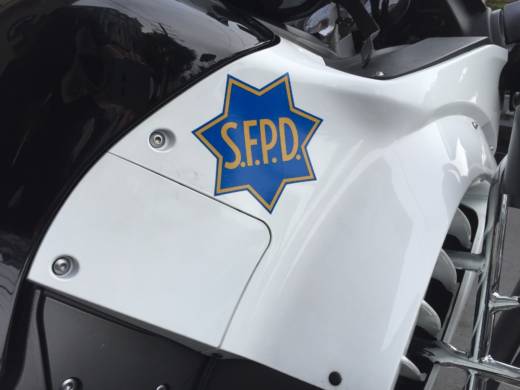"Today feels good because it is the culmination of all those tears, the blood that has been spilled, that we stand before you recognizing that finally policies are stepping up and catching up," she said. "It brings us one step closer to bringing truth and transparency to heal the rifts that we have been experiencing for generations."
The initial review of the SFPD by the federal DOJ's Office of Community Oriented Policing Services -- or COPS -- found “concerning deficiencies in every operational area assessed,” including use of force, bias, community policing, accountability, recruitment, hiring and promotions. It grew from an outcry over a series of fatal police shootings in 2015 and 2016, and repeated calls from advocates and then-Mayor Ed Lee's request for a court enforceable "pattern-or-practice" investigation of the Police Department.
But that legally binding probe was passed over in favor of the relatively new collaborative reform program, through which the COPS office made nonbinding recommendations.
Over a years-long evolution of SFPD's federal oversight, San Francisco Public Defender Jeff Adachi repeatedly called for the state attorney general's office to undertake its own "pattern-or-practice" investigation, which is authorized by state law. Becerra's announcement Monday again falls short of that goal, however.
"Under the terms and conditions of this [memorandum of understanding], the Cal DOJ is not exercising its authority under California Civil Code, section 52.3, subdivision (b)," the agreement executed Monday says. "Cal DOJ agrees that this MOU is a collaborative effort and is not a pattern or practice investigation."
Instead, the state is taking over assessing San Francisco's progress on the federal government's nonbinding reforms.
In September, the U.S. Department of Justice announced that the COPS office would no longer provide resources or guidance. It also advised San Francisco that it would no longer review the proposed reforms.
"Unfortunately, when the U.S. Department of Justice concluded the work, they were in the process of writing the first assessment report that never got released and won’t be released," Police Chief William Scott said Monday. "It’s one thing for us to report what we’re doing. It’s another thing for somebody totally independent to come in and assess what we’re doing and report to the public."
Scott said the department has made significant progress on more than half of the recommendations. SFPD has fully implemented body cameras and completely rewritten rules governing officer use of force.
As a result, Scott said, overall uses of force were down 18 percent in 2017, and citizen complaints of officer misconduct dropped by 9 percent.
SFPD has also started automatic audits of all electronic communications, such as emails and text messages, between officers on city-issued devices. That change speaks directly to a major scandal involving about a dozen officers who swapped racist, sexist and homophobic text messages that were unearthed in 2015 through a federal criminal investigation.
But much work remains, Scott said, noting that fewer than half of the recommendations on officer accountability have been carried out.
"I think we’ll be here all day if I list out everything that still needs to be done," Scott said. "We know we have a lot of work to do, but the point we’re trying to make here is that -- the attorney general has made it, the mayor has made it, both supervisors have made it and I’ve made it. We’re committed to doing this work and we won’t stop until it’s done."
Among issues that have yet to be addressed is an initiative that would have the San Francisco District Attorney's Office take over officer-involved shooting investigations. The district attorney has created and staffed a specialized unit for that purpose, but the final signoff has been stalled for over a year in negotiations with the police officers union.
While the federal Collaborative Reform effort came with a cost-free team of attorneys and law enforcement consultants, San Francisco is now going to have to pay to get graded. The agreement with the California Department of Justice says the Police Department will hire a consultant who will report both to the state and SFPD.
The California Attorney General's Office declined to say when its first assessment of the Police Department would be completed. An SFPD official estimated it could come as soon as April.

